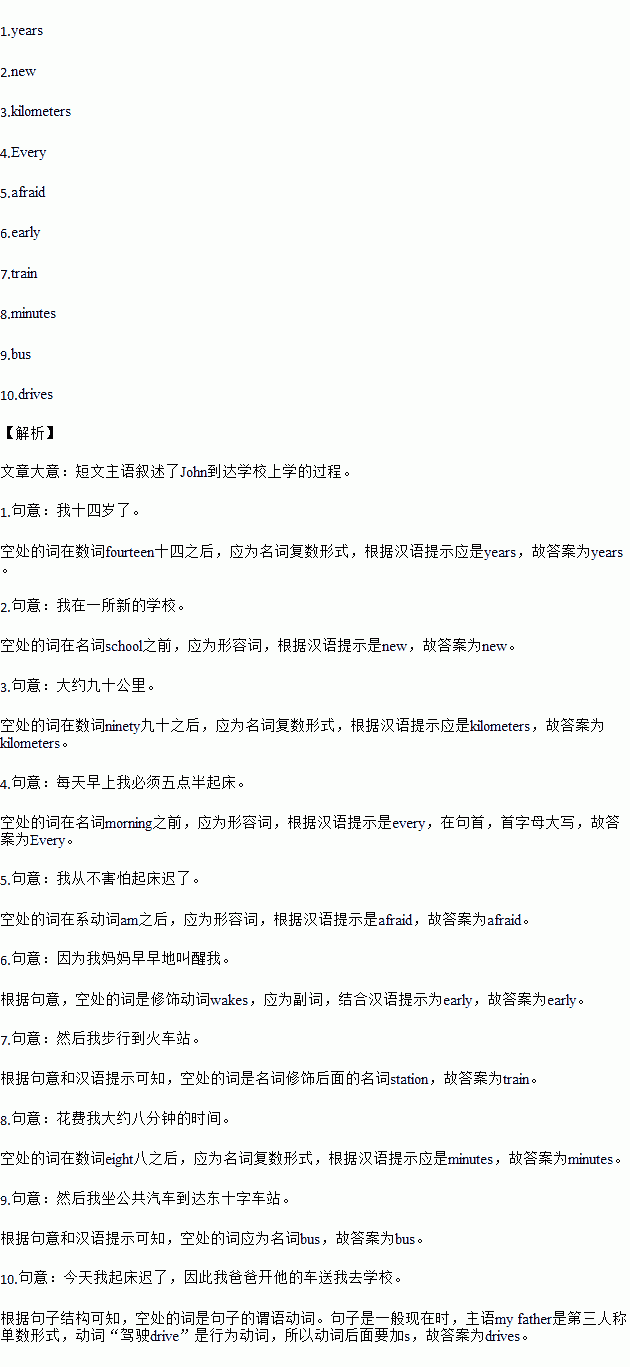题目内容
根据短文内容和括号内所给汉语意思,写出空白处各单词的正确形式(每空一词)。
Hello,I'm John.I'm fourteen1.(岁)old.I'm in a 2.(新的)school.It is far from my home.It's about ninety 3.(公里).Let me tell you how I usually get to school.4.(每个)morning,I have to get up early at half past five.I'm never 5.(害怕)of getting up late because my mother wakes me up6.(早地).Then I walk to the 7.(火车)station.It takes me about five 8. (分钟).Then I take the train.Because I have no time to have breakfast at home,I always have it on the train.I take it to Central Station.Then I get to East Cross Station by 9.(公共汽车).From there,I walk to school.I usually get to school at eight.
Today I get up late,so my father 10.(驾驶)his car to take me to school.
练习册系列答案
 名校课堂系列答案
名校课堂系列答案
相关题目

